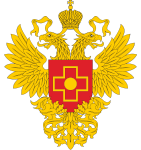
This article is an open access article distributed under the terms and conditions of the Creative Commons Attribution license (CC BY).
ORIGINAL RESEARCH
Immune responses associated with Hodgkin lymphoma
N. Laverov Federal Center for Integrated Arctic Research, Ural Branch of the Russian Academy of Sciences, Arkhangelsk, Russia
Correspondence should be addressed: Veronika P. Patrakeeva
Nikolsky prospect, 20, Arkhangelsk, 163020, Russia; ur.xednay@akinorev.aweekartap
Funding: the study was performed as part of the Program of Fundamental Scientific Research on the topic of the environmental immunology laboratory, Institute of Physiology of Natural Adaptations, Laverov Federal Center for Integrated Arctic Research, Ural Branch of the Russian Academy of Sciences (project №122011300377-5).
Author contribution: Dobrodeeva LK — study planning, data acquisition, processing and interpretation, literature review, manuscript writing; Patrakeeva VP — data processing, literature review, manuscript writing.
Compliance with ethical standards: the study was approved by the Ethics Committee of the Laverov Federal Center for Integrated Arctic Research, the Ural branch of RAS (protocol № 4 of 7 December 2016, protocol No. 6 of 14 February 2022) and conducted in accordance with the principles of the Declaration of Helsinki (1975, rev. 2013).
HL is characterized by significantly enlarged lymph nodes and the presence of rare Hodgkin and Reed-Sternberg cells. Pathogenesis is not fully understood. The increase in the disease risk can be associated with immunosuppression, HIV, parenchymal organ transplantation, autoimmune disorders, etc. The possibility of differentiating pathogenetic and protective immune responses associated with this disease will help understand the causes of the disease and the treatment prognosis. The study was aimed to determine the features of immune responses in HL depending on the disease duration and the circulating lymphocyte counts. A total of 134 patients with HL were assessed. The cytogram and phagocytosis were assessed in blood smears stained by the Wright-Giemsa procedure. The expression of lymphocyte markers in lymphocytes was determined using the indirect immunoperoxidase technique and flow cytometry. Serum levels of cytokines, immunoglobulins, autoantibodies and circulating immune complexes were assessed by enzyme immunoassay. Comparative analysis of the immune responses depending on peripheral blood leukocyte counts is provided. It has been found that prolonged HL course is associated with the decrease in the functionally active T cell counts, progressive neutropenia and monocytopenia, along with the increased activity of the reaginic reactions and autosensitization. In individuals with lymphocytopenia, mainly small lymphocytes die, the 3-fold decrease in the counts of such lymphocytes is observed; lymphocytopenia is associated with the deficiency of circulating T cells, both mature and immature, the concentrations of which decrease by 2.5–3 times, while B cell counts show no dramatic changes. The disease progression is associated with reduction of the lymphocyte homeostasis control by granulocytes and monocytes, along with progressive neutropenia and monocytopenia.
Keywords: Hodgkin disease, autosensitization, lymphopenia, lymphocytosis, reagins, antibody-dependent cytotoxicity